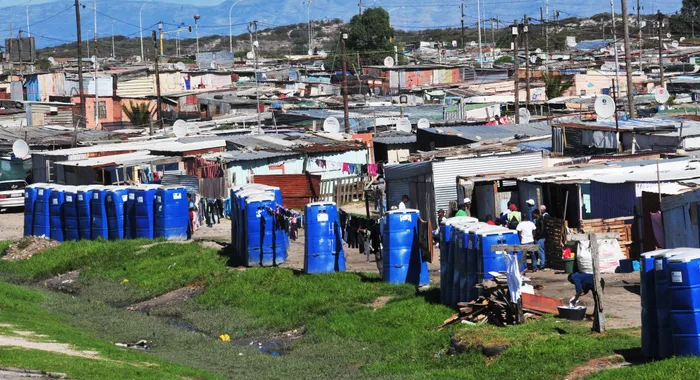Unpacking SA's homeless crisis | Corruption, capacity and crumbling budgets

Despite more than 30 years of democracy, South Africa’s housing crisis remains unresolved, with millions of people still waiting for access to adequate homes.
Image: IOL
Despite more than 30 years of democracy, South Africa’s housing crisis remains unresolved, with millions of people still waiting for access to adequate homes.
While the government has successfully provided housing for nearly 3 million households through the Reconstruction and Development Programme (RDP), which was initiated in 1994 to address the socio-economic imbalances created by apartheid
The housing backlog continues to grow. According to the National Housing Needs Register, more than 2.4 million households still require suitable housing.
Experts have warned that the number of households in need of housing may increase even further as more people move to urban areas in search of job opportunities and improved living conditions. The country's urbanisation rate is expected to rise to 71% by 2030.
The Development Action Group (DAG), a non-profit organisation dedicated to creating inclusive and sustainable neighbourhoods, argues that government policies aimed at addressing the housing crisis have often been poorly implemented.
"Despite numerous policies and programmes that specifically speak to low-cost housing (i.e. RDP and social housing, etc.) and vulnerable groups (EHP, Special Needs Housing Policy, etc.), the policies and programmes have not always been implemented in the most efficient way.
"Some of the gaps include insufficient funding and mismanagement of available resources, inadequate capacity to deliver, poor intergovernmental cooperation, inadequate land management and poor coordination between departments on land decisions, lack of policy certainty."
Despite this, the government remains committed to addressing the housing crisis. Human Settlements spokesperson Tsekiso Machike has emphasised that housing remains a priority, with clear targets set in the 2024-2029 Medium Term Development Plan (MTDP):
- Deliver 237,000 BNG/RDP units.
- Provide 314,000 serviced sites.
- Register 80,000 title deeds.
- Upgrade 4,075 informal settlements.
- Build 15,000 social housing units (rental stock).
- Distribute 140,000 subsidies to assist the “missing middle” in purchasing or building homes.
However, while the government has set clear and ambitious targets for housing, implementation at the municipal level has often been an issue, with reports of corruption and mismanagement hindering progress.
Machike explained that the government has a zero-tolerance stance on corruption, emphasising that this commitment is reflected in actions such as dismissing officials, pursuing convictions.
"The government's commitment is reflected in measures such as dismissing officials, pursuing convictions, and establishing initiatives like the Fusion Centre to combat corruption,".
"The government has adopted a zero-tolerance approach to corruption and has developed a National Anti-Corruption Strategy to guide anti-corruption efforts across various sectors,".
Last month, the KwaZulu-Natal MEC for Human Settlements Siboniso Duma said that many housing projects were delayed because contractors went bankrupt, and some faced supply chain issues and irregularities.
According to Jens Horber, a researcher at Ndifuna Ukwazi, one of the biggest challenges facing municipalities was decreasing budget allocations and slow administrative and development processes and insufficient state capacity and skills.
"Due to decreasing budget allocations, slow administrative and development processes and insufficient state capacity and skills, there has been a steady decrease in housing and serviced site delivery over the past 15 years".
"The slow pace of delivery and the lack of support for backyard housing and other genuinely affordable housing options means that housing demand massively exceeds supply, resulting in the continued growth of informal settlements", he said.
To address the housing crisis, the Development Action Group (DAG) stresses that the strategic release of well-located land for affordable housing must be prioritised
"The strategic release of well-located land for affordable housing must be prioritised, we must proactively plan for informal settlements, we have to be very pragmatic in our approach to site-and-services and establish the mechanisms necessary to ensure its successful implementation.
"We must dedicate significant resources towards infrastructure development and maintenance, and most importantly, we have to create spaces for consistent community engagement where beneficiaries of housing assistance have actual decision-making ability, therefore playing a direct role in their own development".
IOL News
Related Topics: